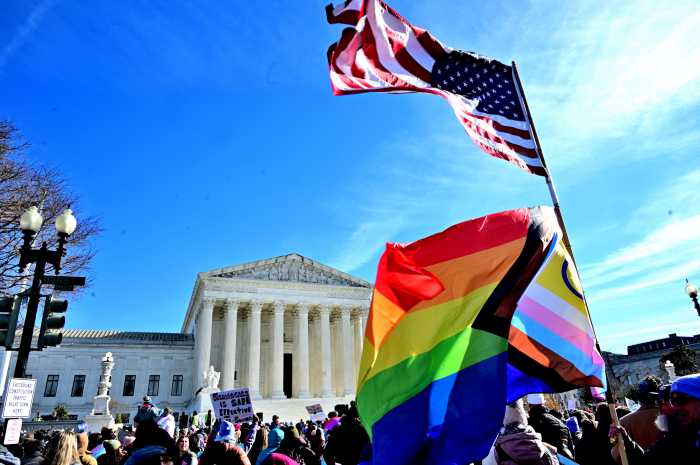By: PAUL SCHINDLER | The Democrats are fortunate in their choice of candidates this year, and the LGBT community could do a lot worse than to have to pick among Hillary Rodham Clinton, Barack Obama, and John Edwards.
The race, barring an unforeseen turn down the road, seems to have narrowed to a battle between Obama and Clinton; in the case of both, fair and important questions need to be raised, aired, and answered.
It is altogether appropriate for Clinton, her supporters, and voters generally to ask whether Obama has had the requisite time and seasoning on the national stage to hit the ground running on day one with the gut judgment and store of direct, hands-on experience on the full range of policy questions, domestic and international. One need not exaggerate Hillary Clinton's responsibilities in her husband's administration to acknowledge that she's been an informed, active, and passionate player in the national political debate for many years.
To raise these questions is by no means the same as suggesting that Obama is just a “kid,” in former President Bill Clinton's unfortunate formulation. Obama is a serious and accomplished man who undoubtedly will be a leading figure in our nation's political future, come what may this year.
It is also perfectly fair for the Illinois senator to ask whether Hillary Clinton has the political courage, dexterity, and skill to break the logjam that has made Washington so impervious to real reform in recent decades.
With national security and the nation's policy in the Middle East critical issues facing us in 2009, Clinton's votes in 2002 on Iraq and 2007 on Iran raise questions about her willingness to stand apart from prevailing political winds. Obama has not offered a convincing comprehensive vision for remaking our foreign policy, but it indisputable that in 2002, when he surely knew he would seek statewide election two years hence, he nonetheless had the right instincts on Iraq and the courage to stand up for them.
All that said, Hillary Clinton and Barack Obama are also politicians, and they employ more handlers and pollsters than any of us would really care to know about. Both have tiptoed very close in recent weeks to a line neither of them should cross. Both of them need to understand the consequences of falling prey to overweening political ambition and ignoring prudent restraint.
Clinton was inartful, to be kind, when she compared the roles of Martin Luther King, Jr., and Lyndon Johnson in advancing civil rights. The two men by definition played in different spheres. Johnson, before he fell on his sword over Viet Nam, was a towering figure and his leadership on civil rights historic. But King changed the world with his passion and by his example.
Clinton's glib observation about King and Johnson was unworthy of her.
But equally unhelpful was a response from Jesse Jackson, Jr., the Chicago congressman who is the Obama campaign's national co-chair. Presumably aiming to keep Clinton's so-called tears in the news on the thinking the episode might hurt her as a female candidate, Jackson told MSNBC, “They have to be looked at very, very carefully in light of Katrina, in light of other things that Mrs. Clinton did not cry for. Particularly, as we head to South Carolina, where 45 percent of African Americans will participate in the Democratic contest, and they see real hope in Barack Obama.”
From both ends, this dust-up threatened to open up a racial, and possibly a gender, divide within the Democratic Party that is counterproductive politically and could also do real and lasting damage to our progress as a society.
Hillary Clinton and Barack Obama, in every important endeavor in their lives, have shown they believe in racial justice and gender equality. They need to make sure their campaigns reflect that.
But Clinton has an additional responsibility. Her campaign has repeatedly injected the issue of Obama's admitted youthful use of cocaine into the public discussion. First, a top New Hampshire campaign official did so, then her chief pollster repeated the word cocaine several times on television in a disingenuous pledge to not make an issue of it, and now Robert Johnson, owner of Black Entertainment Television, has made an oblique reference to it which he has disgracefully pretended was not his intention.
This has to stop. It is divisive and, knowing the social mores of the crowd who flocks to political campaigns, it is also hypocritical. And the notion that it is better the issue be aired among Democrats before the Republicans get their hands on it is an argument that could justify all manner of sleazy political tactics.
Obama was honest about his life and his youth. If only other political leaders could demonstrate the same measure of trust in American voters, we might move beyond the pettiness and superficiality of our politics.
Over the next several months, Democrats and the American public are owed and must demand a contest of ideas.


































